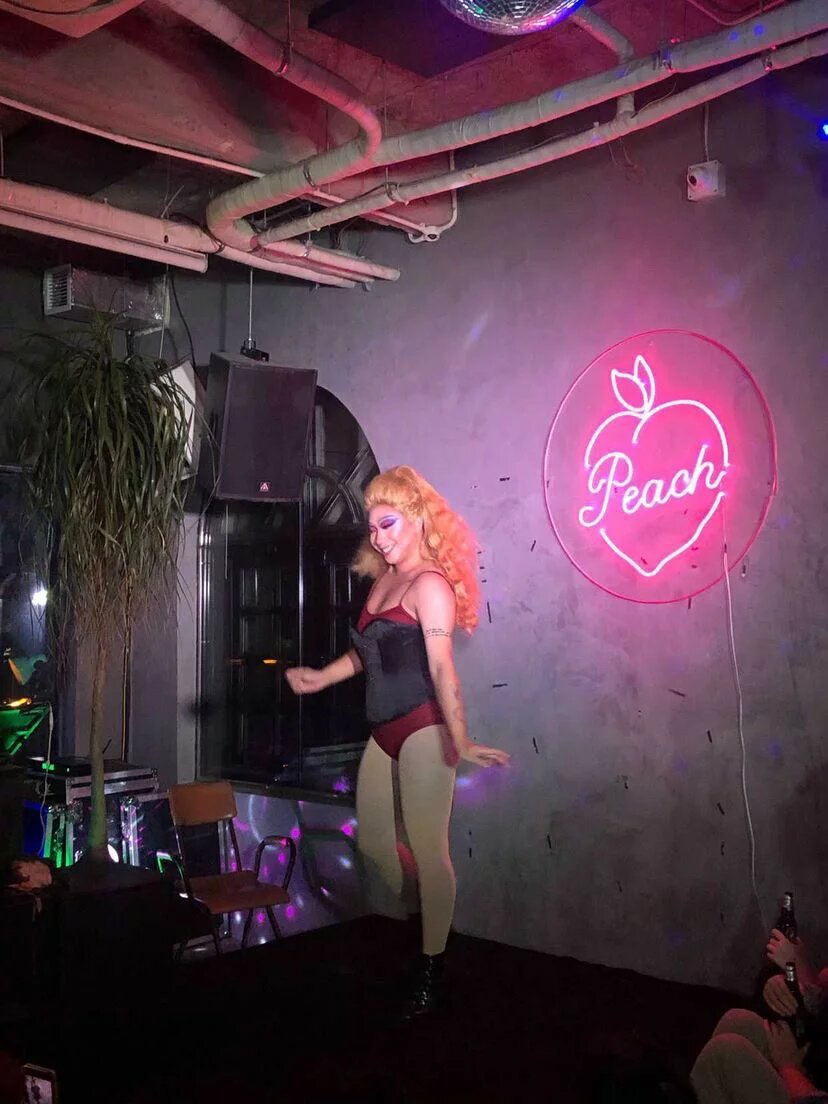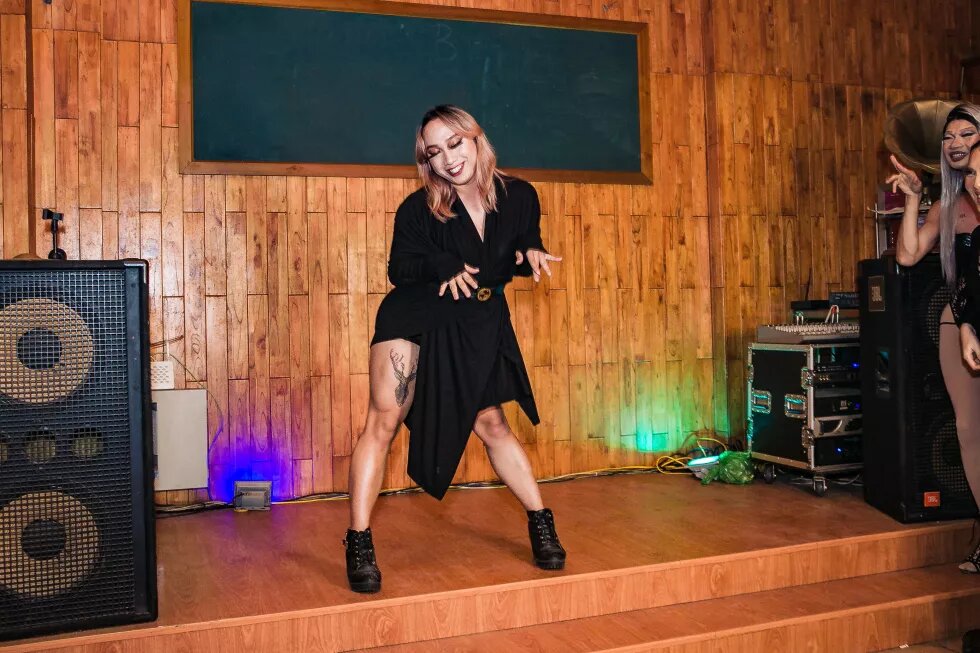
Valerie Hammond came out as a gay man when she was 17 before realizing that she is a trans woman. In sharing her personal experiences of becoming transgender two years ago, she reflects on the continual social discrimination and lack of legal rights the LGBTQIA+ community in Vietnam still face.

In early 2020, I began to realize that I might not be cisgender (where gender identity aligns with sex identity at birth), but I didn’t feel confident enough about that realization to come out to anyone until June of the same year. I needed to thoroughly consider all the factors involved, including the options to transition in Vietnam, and also how it would affect the relationship with my now fiancé who I had been dating for two years.
Transitionings: physically and mentally
A few months later though, my official transition started. At first, I struggled to find the information I needed about transitioning in Vietnam. I managed to collect some information from other transgender people, but even then, I was still unsure. The information seemed to vary greatly from person to person, reflecting how hard it is for people in our LGBTQIA+ (lesbian, gay, bisexual, transgender, queer/questioning, intersex, asexual) community to seek reliable and trustworthy sources.
When I found out about Hong Ha LGBT Hospital, I was excited to start the process, though I was a little disappointed because the doctor told me that there wasn’t really any faster way to start transitioning in Vietnam other than taking estrogen pills. Estrogen injections or estrogen patches, which can boost transition speed, were not available here. Further, taking birth control – a form of testosterone blocking – would come with a number of side effects as well.
Psychologically, I was really struggling with the constant need for validation of my gender identity from everyone. It didn’t seem to be enough that I knew that I was a woman. I needed to be seen as a woman by everyone else, whether it be my friends and family, or even strangers. This was especially acute during the early stages of my transition.
Socially, I was – and to this day still am – often referred to as ‘sir’, due to my still somewhat masculine voice, as well as being physically bigger than an average Vietnamese woman. Some people that have known me since pre-transition would still call me by my previous name, despite knowing that I have a new one. One of these people even said to me that they’d only refer to me by my new name and acknowledge me as a woman after I had a vaginoplasty.
Seeking personal and community love and acceptance
People say ‘There’s two sides to every coin’ and it’s true. As hard and difficult of a process my transition has been, I’m blessed to be surrounded by the constant love and positivity of my partners and my friends, who immediately started referring to me with female pronouns and calling me by my new name.
My fiancé was the very first person I came out to, and he has been nothing but understanding and supportive. In fact, he was glad that I came out. He told me that had I stayed in the closet for the sake of our relationship, it would have led to resentment and harm to our relationship. “At the end of the day, it’s your life. No one else gets a say a thing about it.” His words still stick with me till this day.
In fact, his advice is one of among other things that has helped me find acceptance within myself, so that I can confidently and openly be proud of who I am, regardless of how anyone else, or society as a whole, sees me.
However, I understand that not everybody can be as fortunate as I am, so I try to give back to our community as much as I can by helping other queer people in general, or transgender individuals specifically, find validation within themselves. I find that many times, simply lending an ear to listen or a shoulder to cry on really helps people going through a difficult time. I’m also very active in the drag scene in Hanoi. I want to show the LGBTQIA+ community that it’s completely okay to be your genuine self. I also support the drag community because it creates a safe space for everyone, regardless of gender, sexual identity, nationality, or anything else, to express themselves.
Having said that, we cannot deny the reality that our community still faces. Unfortunately, there are still many cases of unfair treatment and discrimination, as significantly highlighted in a recent Human Rights Watch report on LGBT youths. Despite this, I’m hopeful that there will be changes coming that will benefit our community. One of the benefits I’d like to see for our community is to be protected by the law and our government, specifically when it comes to same-sex marriage.
Next steps to less stigma and ensuring equality
From 20 years ago when Vietnam’s government outlined homosexuality as a “social evil” to the present day, there is no doubt Vietnam has become more open towards the LGBTQIA+ community. But there are some legal and social progressions that would be essential and very helpful to the transgender community specifically, and the rest of the LGBTQIA+ community at large.
Firstly, while Vietnam was one of the first countries in Asia to allow transgender people to change their gender marker, the process currently remains difficult and at times preventively so. It would be very helpful if this process was streamlined and more accessible to those that need it.
Secondly, legal protection against discrimination would be a major help. Thankfully, Vietnam is not a country in which we see ‘gay bashing’ and other violence against the LGBTQIA+ community like in the West, or even some countries in Southeast Asia. However, that does not mean that we never face any negative social or practical repercussions, such as dealing with public institution administration and organizations requiring identification. Legal protection would help minimize and prevent this.
Thirdly, laws to let marriage be more accessible to our community. While celebrating same-sex marriage is currently legal in Vietnam, such marriages do not come with the legal benefits and recognition that heterosexual people receive with their marriages, creating a situation where the authorities neither openly support nor decry LGBTQIA+ relationships. If marriage was made to be the union between any two consenting adults, no matter their gender or identification, it would be a huge step forward for our community.
Lastly, increased education about the subject of sexuality and gender. The more informed a society is, the more tolerant it will be to those who are different. Further, it would help people who are confused about themselves get better access to information that could help them. This would decrease cases of depression and anxiety, especially among young LGBTQIA+ individuals.
All of these would help boost and support the wider LGBTQIA+ community in Vietnam, towards self and social acceptance, backed by recognition of equality under the law. The community has struggled long for this, and as per the theme of a previous VietPride parade, should never give up towards achieving this, no matter what.
__
Valerie Hammond is a performer, Gender equality and LGBTIQA+ rights advocate, and personal assistant based in Hanoi, Vietnam.
The views expressed in this article are not necessarily those of Heinrich Böll Stiftung
This article is a part of "🌈 June, the Pride Month 2022" and web-dossier 🏳️🌈 "LGBTIQ+ Rights in Southeast Asia"
This article was first published here: th.boell.org

